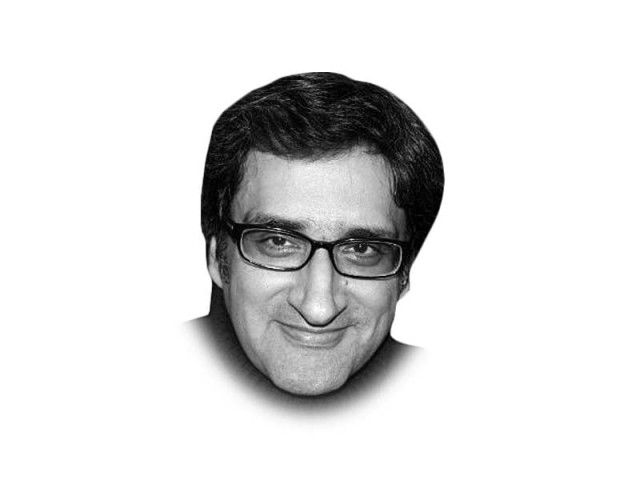Civil services in Naya Pakistan
Power struggle is manifested within Federal Civil Services

The writer is a practising lawyer and an ex-civil servant
The legacy of the colonisers in general and of the British in particular, has been of the colonial bureaucratic structure. The premier part of the British Raj’s bureaucracy was the Indian Civil Service, the steel frame of the Empire. It was given special status as it was primarily staffed by Englishmen, and was used to control and run the rest of the administration to serve the Empire and its interests while also doing some good for the Indians. They were naturally given an exalted stature for this role. Unfortunately, the common perception is that in spite of Independence the successors of the Indian Civil Service; the Civil Services of Pakistan, the District Management Group and now the Pakistan Administrative Services (PAS) continue in that tradition. They are seen to act as the elite of bureaucracy and because of the peculiar political history of the country, they are perhaps the most consolidated and developed civil institution, and therefore at times seen as stronger than the politicians. Hence, the struggle for power seems to shift between them and the political government in power, and their major raison d’etre: the service of the people, is always secondary. Service delivery seems more dependent on the goodwill of the individual ‘Saab Bahaudur; gaura of gundami’, rather than the institution itself. Although to be fair, some of them have done really good work in their respective departments.
At another level, power struggle is also manifested within the Federal Civil Services, and in the provinces between the Pakistan Administrative Services (PAS) and Provincial Management Services (PMS), and PAS and the Police service. Unfortunately the welfare of the people, who are the ‘masters’, and in whose name the governments are being run, don’t seem to be a priority in this tussle. This was ‘purana Pakistan’! The question is, in ‘Naya Pakistan’, how can we change this nature of the vital governance structure? It is a commonly held belief, maybe erroneously, but nevertheless, widely held that the bureaucracy can help succeed a plan, or wreck it. And this concept exists even in the mother of modern bureaucracy, England. “Yes Minister”, being a case in point.
In this background any plans of reform of the civil service will not just be a vital part of any governance reforms and their success, but are also sure to attract a lot of attention and scrutiny as to the likelihood of its success, especially given the fact that many such exercises have been conducted over the decades, without producing the desired results. The new government on September 5th notified a Task Force on Civil Services Reform. Any meaningful reform requires across the board stakeholder consultation, and the trust and faith of the stakeholders in the Task Force. This necessitates an examination of the composition of the said Task Force. It has eighteen members and a Secretary to be appointed by the Secretary Establishment Division. Out of these, 10 are nominated by name, and eight by designation. The Secretary is yet to be notified. Of the eight officials, all eight, yes, all eight, are from the Pakistan Administrative Service. And of those nominated by name, three, including the Chairman, are former ICS or DMG officers. One might hope that the rest of the seven would include representation from the other Federal Service Groups and a representative of the provincial management service as well. Well actually, no, the rest are all from the private sector; leading academicians, an eminent lawyer and a former deputy chairman of the Planning Commission, and a public health specialist. Surprisingly, no management professional from a leading private sector company has been made a member. Given that the PAS is perceived by many in the other services to work towards the protection and consolidation of its power, both at the Centre and provinces, this composition is likely to raise eyebrows. In the backdrop of it, it would be hard to sell any reforms proposed by them, no matter how well intentioned. The members from the private sector are all eminent professionals and have proven their worth in their respective fields, but apparently with the exception of Shahid Kardar, they have no significant body of work on civil service reforms.
The role of the civil service in a country like Pakistan is essential and it is staffed by many talented, hardworking and patriotic people who wish to serve their country well. Admittedly, political interference in the bureaucracy is a major cause of concern, but this alone is not the problem. An equally serious problem is this intra- service disharmony. There is therefore a need to involve and consult all service groups, not just the federal ones but also the provincial ones, especially given that the greater subjects have been devolved to the provinces after the 18th Amendment. Each of them needs to have a stake in the system, otherwise there is a danger that the greater goal of efficient and transparent governance and better service delivery may become subordinate to the primary one of consolidating the group interest. There is still time for the Prime Minsiter to reconstitute the Task Force with a view to making it more inclusive and hence more meaningful. After all we all have a stake in the future of the country, and this need not be a zero- sum game.
Published in The Express Tribune, September 16th, 2018.
Like Opinion & Editorial on Facebook, follow @ETOpEd on Twitter to receive all updates on all our daily pieces.














COMMENTS
Comments are moderated and generally will be posted if they are on-topic and not abusive.
For more information, please see our Comments FAQ